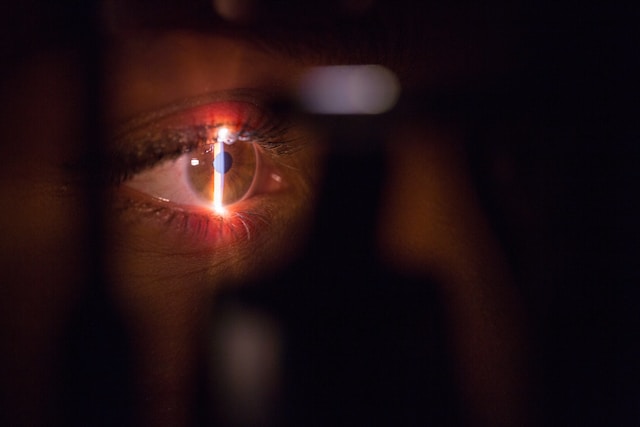As part of our coverage of the National Institute of Health’s (NIH) Innovation Zone at the 2023 Biotechnology Innovation Organization (BIO) International Convention in Boston, Massachusetts, Bio.News caught up with OculoTherapy’s founder and Chief Scientific Officer, Monica Jablonski, Ph.D., FARVO, to discuss the company’s groundbreaking work.
OculoTherapy is focused on developing new therapeutics to treat glaucoma and other eye diseases.
The following has been edited for length and clarity.
Bio.News: How did OculoTherapy get started? What drove you during your time at the Hamilton Eye Institute, University of Tennessee Health Science Center, to pursue the path of treating glaucoma early on?

Dr. Jablonski: I’ve been drawn to translational science since the beginning of my time as a graduate student in the lab of Hank Edelhauser, one of the inventors of BSS+, an intraocular irrigating solution used in nearly all surgeries on the eye. As my academic career progressed, my team started making discoveries that could possibly be translated to the clinic and improve patient care. I found this very rewarding and sought the next step, which was to launch a start-up company to move our discoveries along the path toward commercialization.
The specific event that launched OculoTherapy was discovery of a novel gene that modulates intraocular pressure (IOP). Because elevated IOP and fluctuations in IOP are the primary modifiable risk factors leading to vision loss in glaucoma, it made perfect sense to further explore this gene and its role in this devastating disease.
Our studies revealed that the gene we discovered encoded for a druggable protein and that there was an FDA-approved drug that had recently gone off patent that targets the protein with high specificity and affinity. Application of that drug as an eye drop lowered IOP, but the effect did not last long. This prompted us to engineer an extended-release and bioadhesive formulation to keep the drug on the surface of the eye for longer, thus allowing more drug to enter the eye over a prolonged period of time. The result was a novel eye drop that reduces IOP to the normal physiological range and completely eliminates fluctuations in IOP, thereby targeting both of the primary risk factors that rob glaucoma patients of their sight.
Bio.News: What makes OculoTherapy’s genetic-based approach different?
Dr. Jablonski: There are two important factors that make our approach to glaucoma treatment different. The first involves accounting for genetic variability of glaucoma patients. By fully understanding the variations in protein-encoding genes that modulate IOP, we can scientifically evaluate the interactions of drugs with their protein targets and predict which patients would be better responders, often referred to as a precision medicine approach.
The second factor is grounded in our eye drop formulation that greatly enhances drug movement into the eye. Most eye drops are washed off the eye within approximately five minutes due to blinking and tear drainage. Our formulation keeps the drug on the surface of the eye for up to 24 hours. This has a dramatic effect on the efficacy of the drug.
Bio.News: How has this approach revealed a new understanding of the development and treatment of glaucoma?
Dr. Jablonski: It’s well established that different ethnic groups can be more predisposed to developing certain diseases than others. There can also be disparities in disease severity among populations.
Unfortunately, the underlying reasons for this are not fully understood but most likely are tied to specific gene variants that segregate in different populations. A thorough understanding of the specific genetic differences, including predicted differential responses to treatment, has the potential to greatly advance glaucoma care and allow for tailored prescription of medications to specific populations that are most likely to positively respond to the treatment.
Bio.News: What are the next steps for OculoTherapy?
Dr. Jablonski: We have a Type B teleconference scheduled with the U.S. Food and Drug Administration (FDA) later this month (June 2023) to gain their guidance on our proposed regulatory strategy. Based on their feedback, we will refine our strategy and hit the ground running to complete our Investigational New Drug Application (IND)-enabling studies and file for IND approval for our novel glaucoma therapeutic.
Our sights are already on the clinical trials that will be required to obtain the New Drug Application (NDA) from the FDA. To support these studies, we will continue to seek non-dilutive funding and expand our portfolio to partner with outside investors. We are very excited about the next steps and look forward to providing a new treatment option to glaucoma patients in the near future.




